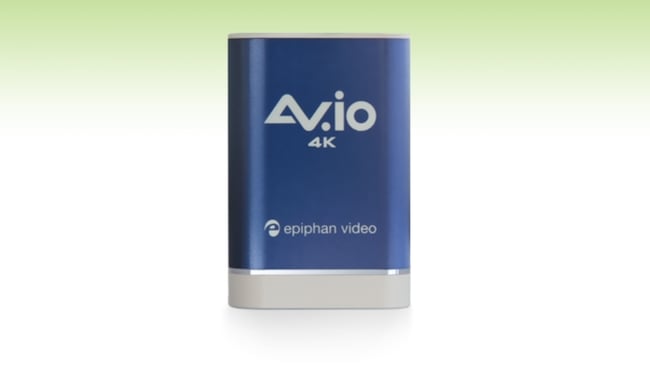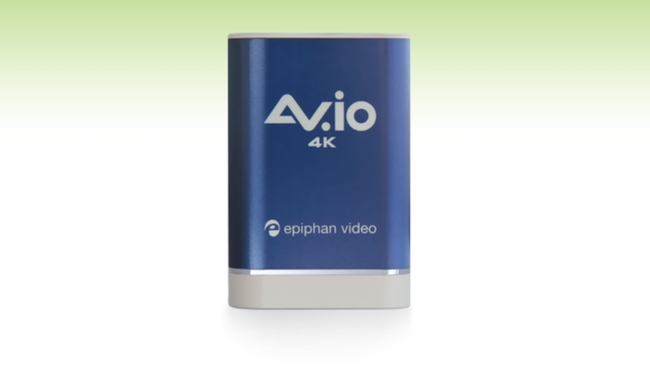
 AV.io 4K-to-USB Capture-Stream-Record Adaptor
AV.io 4K-to-USB Capture-Stream-Record Adaptor
Epiphan Video aims to democratize 4K streaming and capture to your computer with its award-winning 4K-to USB 3.0b adaptor.
When it comes to the next hot film tech item, I/O devices often get a short drift, at least as compared to whichever latest and greatest camera to hit the market. But, I think any experienced film professional should be able to appreciate the importance of such products, even if that appreciation was hard earned in the field, when the wrong device was in the kit (or when the right device fails).
In that vein, we're sharing word of just such a product that's recently crossed our desks. The AV.io 4K, by Epiphan Video, is an external capture card that took home some hardware of its own at InfoComm 2016 this past June, winning the 'Best New A/V Accessory' award. As we relay some of the AV.io 4K's features, it's readily apparent why the product earned such praise.
Simple 4K streaming
The AV.io 4K is a diminutive adaptor that could have major relevance for certain productions, especially for live streamers. The device is essentially a 4K-to-USB 3.0b capture card that takes your camera feed from HDMI and brings it into your computer for capture/recording and streaming. There is backward compatibility with USB 2.0, but, of course, the resolutions and frame rates over USB 2.0 are limited. However, plug-in to a USB 3.0b port and you're in business, sending HD at up to 1080p 60 fps, 4K UHD 30 fps, and 4K DCI 24 fps video to either your Windows, Mac OSX or Linux computer, albeit at 8-bit. In terms of colour space, there are 8-bit 4:2:2 options for HD resolutions, but for 4K, the more usable frame rates top out at 8-bit 4:2:0. Users may either pass-through the video at the same resolution (with perhaps a conversion of colour space or bitrate) or elect for the AV.io 4K perform a conversion to another frame rate.
Ease of use is again highlighted by the fact that there is no driver needed for use; each of the supported operating systems will auto-detect the AV.io 4K upon connection. The AV.io is also bus-powered, eliminating the need for an external power source and making the device truly 'plug-and-play'.
Rounding out the features, HDMI audio supports up to 96 kHz sampling for input and 16-bit 48 kHz stereo sampling for output. The company boasts "near-zero" capture latency, although it does point out that third-party apps may introduce their own delay into the process. The AV.io 4K's durable, all-metal exterior should provide ample protection, as the company says you can "drop it down a flight of stairs and step on it, and it would still work."
Place in the market
As many of you are likely aware, Blackmagic, AJA and the like have their own solutions for external 4K I/O for capture and streaming, but they often leverage Thunderbolt connectivity, which leaves many PC users still searching for a solution. There are a slew of companies that sell external USB 3.0 compatible I/O capture/streaming devices, but they only handle up to 1080p video.
Those looking to capture 4K video without the need to stream may already have solutions in use, but I can see this product finding its niche. The AV.io 4K may fill a gap in the market for those streamers that want to use more professional cameras for their live productions, without investing money into a new computer. If it fits your needs, the AV.io 4K is definitely a product to consider at $395.
In the coming weeks, we'll review the AV.io 4K, by Epiphan Video, so check back with RedShark News!
Tags: Production


Comments